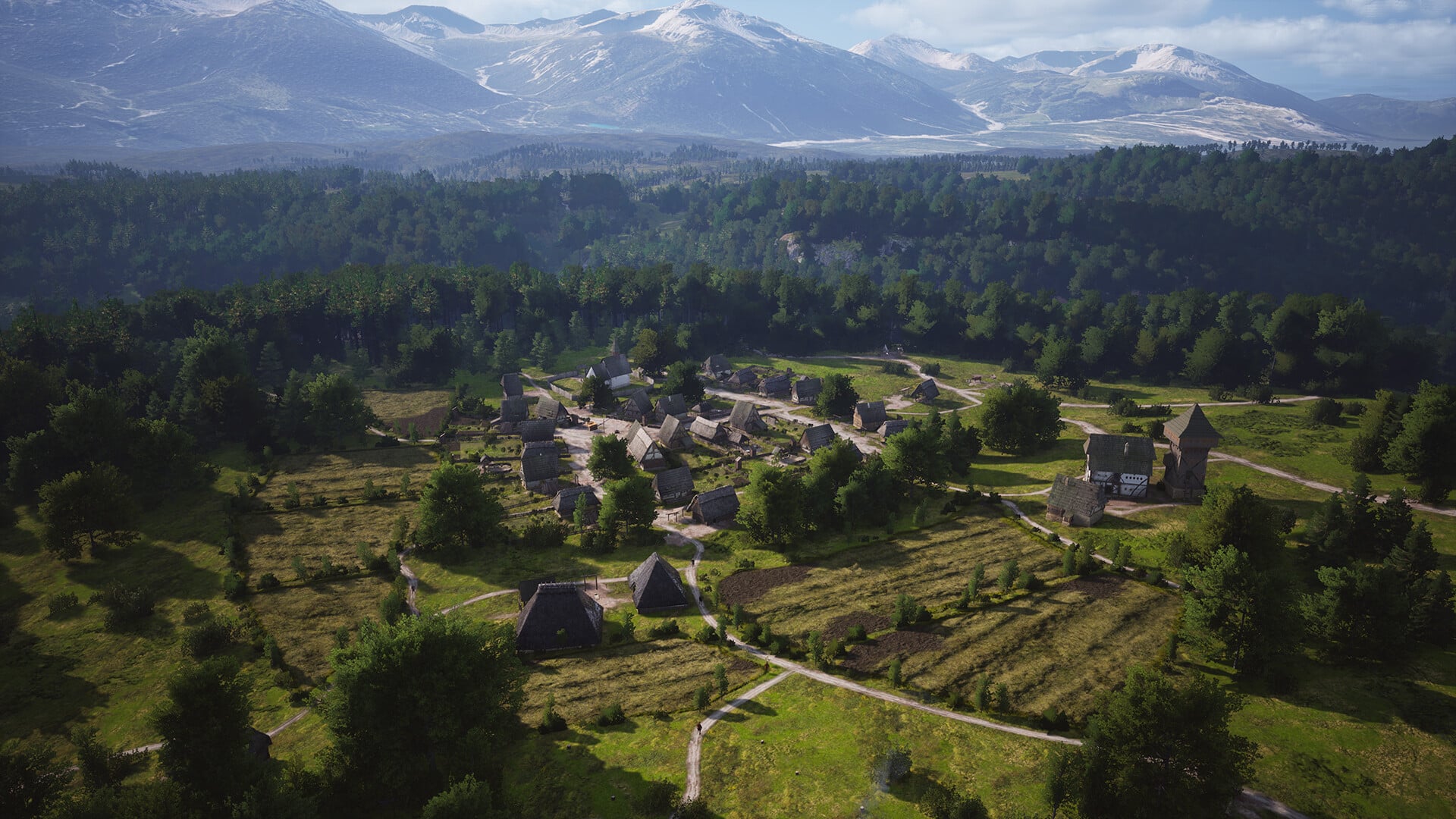
Manor Lords is a strategy game that has captivated gamers since its early access debut. As players construct their own vast empires, one Reddit user, snappzero, has ignited an engaging debate about the effectiveness of urban planning within the game’s system. Instead of constructing massive cities, they advocate for dispersing homes into smaller towns. The rationale isn’t merely hypothetical; it is supported by practical instances that illustrate how reduced travel times can enhance agricultural output. Players are exchanging their experiences, thoughts, and tactics related to this topic, creating a vibrant mix of advice and viewpoints for others navigating the intricacies of this medieval-themed city builder simulation.
Summary
- Snappzero advocates for mini towns due to their efficiency in resource management.
- The game mechanics allow for regional work boundaries, which can dramatically reduce the walking distance for villagers.
- Comments reflect varying opinions, with some users recommending a mix of strategies incorporating both mega cities and mini towns.
- Players express the importance of adapting strategies based on farming needs and personal gameplay styles.
The Case for Mini Towns
In Manor Lords, it’s all about being efficient, and snappzero presents a strong case for scattering your settlements into smaller towns instead of amassing them into large cities. But why are these mini-towns the key to success? Consider this: fewer villagers would have to trudge long distances just to gather a few carrots from the field. By arranging smaller, self-contained communities around farming areas, your villagers can rise, gather their tools, and start work in no time at all. No more grueling commutes, just a peaceful rural lifestyle! Some players have even joked that their villagers might find those evening strolls to the farm quite enjoyable, adding a touch of humor to discussions about efficiency. Although picturesque charm can be appealing, snappzero’s advice appears to make good sense: shorter journeys mean happier and more productive farmers.
Strategies and Adaptations
As a gamer, I’m always on the lookout for tips to boost my in-game farming efficiency, and recently, a fellow player, Adept-Ad-7591, has shared a brilliant strategy. They suggest setting up small groups of farming plots near each farmhouse, similar to satellite villages. This way, each satellite homestead can operate independently while still being connected to a larger urban center for advanced tasks like artisan crafting and industrial work. It’s all about striking the right balance between traditional methods and modern efficiency. The key takeaway is clear: having villagers living close to their crops strengthens the bond between them and the crops, leading to increased productivity in farming operations overall.
The Argument for Mega Cities
While many farmers on the forum support the idea of mini-towns, Atomic_Gandhi presents a contrasting view. He suggests that instead of numerous small settlements, a traditional city with a central market square might be more advantageous. This setup could potentially offer better trade and resource management. Moreover, he wonders if the latest logistics update has influenced this strategy, indicating that future game modifications can significantly impact optimal practices. So, while mini-towns may appear to be the preferred option, there are those who continue to advocate for the strength of large centralized cities.
Caveats and Considerations
Although some supporters endorse the mini-town strategy, gamers tend to be cautious about tactics that might impact overall game performance. A user named cunny_crowder voiced doubt about this approach, noting that without a means to control ox work areas at hitching posts, the advantages could ultimately backfire. This doubt underscores the importance of being mindful of the situation; your layout’s efficiency should match how well the game mechanics perform in reality. If your oxen can’t efficiently transport goods between mini-towns, the gameplay might become resource-congested, which contradicts the very efficiency players are striving for.
In this subreddit, numerous discussions highlight that constructing an Empire in Manor Lords can be achieved through various methods. As players progress and develop their settlements, they must consider factors such as distance, resource abundance, village contentment, and individual play styles. A particularly astute comment noted how hamlets traditionally functioned based on the idea of farmers residing near their fields, thereby underscoring the similarity between these small towns and efficient agricultural practices in reality.
In the ongoing town planning debates within Manor Lords, gamers grapple with the equilibrium between individual taste and productivity. The underlying theme that ties all these approaches together is a passion for resource allocation and streamlining structures to maintain the prosperity of their medieval realms. Whether one opts for compact housing arrangements near fields or prefers the intricate sprawl of a metropolis, it’s clear that trying out different ideas is part of the enjoyment. Newcomers to these strategies should remember to be adaptable and seek advice from the innovative and resourceful community that has emerged around this game. In Manor Lords, the secret to crafting the ideal empire lies in finding harmony, fostering innovation, and welcoming input from fellow players. Enjoy your building endeavors!
Read More
- Who Is Harley Wallace? The Heartbreaking Truth Behind Bring Her Back’s Dedication
- Basketball Zero Boombox & Music ID Codes – Roblox
- 50 Ankle Break & Score Sound ID Codes for Basketball Zero
- TikToker goes viral with world’s “most expensive” 24k gold Labubu
- Revisiting Peter Jackson’s Epic Monster Masterpiece: King Kong’s Lasting Impact on Cinema
- 100 Most-Watched TV Series of 2024-25 Across Streaming, Broadcast and Cable: ‘Squid Game’ Leads This Season’s Rankers
- How to watch the South Park Donald Trump PSA free online
- League of Legends MSI 2025: Full schedule, qualified teams & more
- KFC launches “Kentucky Fried Comeback” with free chicken and new menu item
- 50 Goal Sound ID Codes for Blue Lock Rivals
2025-06-02 05:32